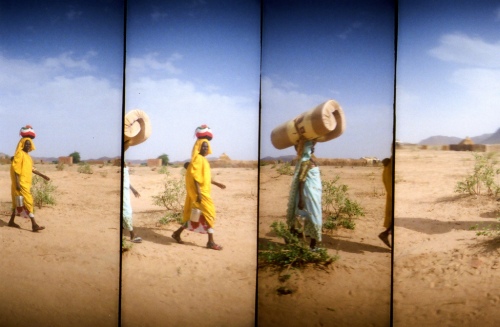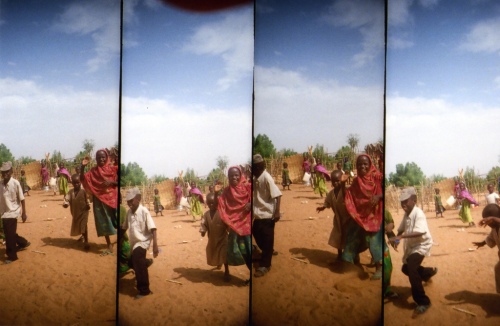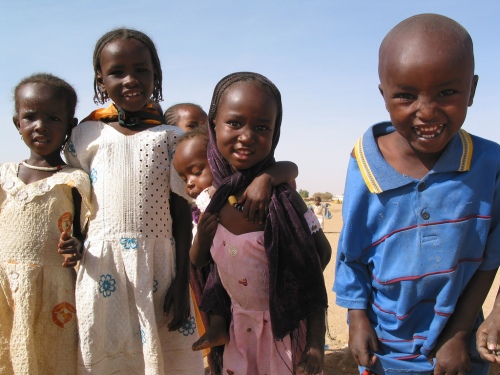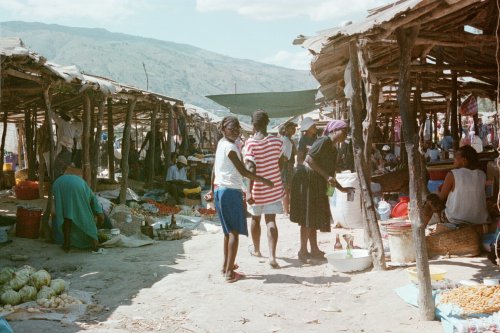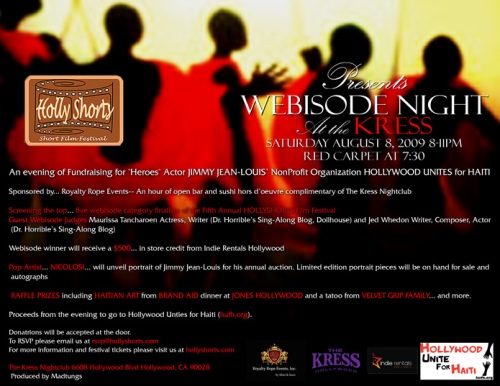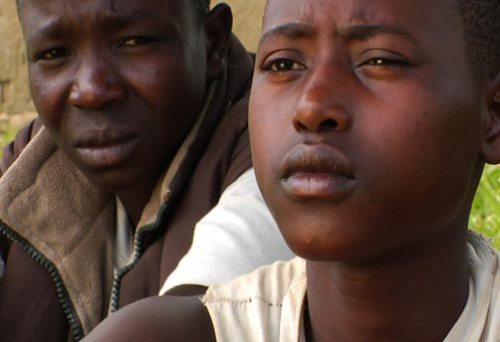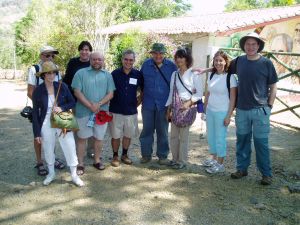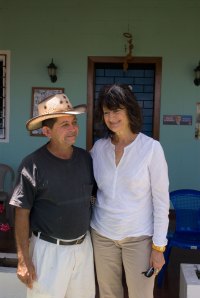No one says it…but the uneasy feeling was palpable. I could see the questions in their eyes: Why are you going to spend Rosh Hashanah in Darfuri refugee camps in Eastern Chad? Why would a rabbi welcome the Jewish New Year in a place where there are no Jews? Do you really think going will make a difference? I understand these questions. I only regret that they are rarely asked aloud. I have had lots of time to reflect on these questions on this three day journey to a place that is far more distant from San Francisco than the days of travel to get here.
I am here in Eastern Chad, this epicenter of human suffering. I am here with fellow human beings, reminding them that we do care and we have not forgotten. I am here listening to their stories and letting them know that I will bring their stories home. I am here because our worlds are inextricably linked.
I first visited here in 2004 and since then I have returned several times. The Chadian people are some of the poorest people on the planet. Here, 275,000 Darfuri refugees have found a fragile safe haven in UN tents. These shelters provide minimal protection from the harsh conditions of sub-Saharan Africa and not much more from the storms of conflict. The plight of the Darfuri people – the nearly three million displaced from their homes and the four hundred thousand dead – has been well documented. Our advocacy and diplomacy has had some impact on decelerating this genocide, now in its seventh year. Our humanitarian aid has saved lives. Still, the situation on the ground remains dismal.
Rosh Hashanah is a holiday that celebrates renewal and creation. It implores us to care for each other and to care for this planet. It reminds us that as long as there is life there is hope. What better place to welcome in the New Year than with the victims of man’s brutality to man. Although we have yet to turn our powerful prayers into a world that is just and humane, I have hope—and hope is all these refugees have. It is their lifeblood.
As I sit here with new friends and refugees whom I have known for years, I marvel at their ability to survive. The soul of a refugee camp resides in the courageous people who dwell within it. The silent screams that echo through the camp are those of a people who are asking if the world still cares. My presence, it could be any of us, conveys that we do care and we are doing our best to restore their lives.
These refugees are the victims of horrific events: genocide, climate change, lack of resources and a world that is confused about its humanitarian priorities. It is no longer possible to separate these problems; real solutions will only come when we think and act in integrated ways. Ways which allow people to live with inalienable rights – to food, shelter, potable water and the absence of violence in their day to day lives.
There is currently much discussion about the role of the US and what international pressure should be applied to change the situation. This work is essential and provides hope for long term solutions. Immediate humanitarian needs, however, cannot be overlooked. My friend Adam cannot wait another year for drinkable water; his daughters cannot wait another day for a life without the constant threat of rape; the elderly and the infants cannot survive another winter without shelter from the torrential desert rain. Where will the aid come from unless we help to provide it?
Is my trip making a difference? I see a difference in the smiles of the children. I feel it when I hold a refugees hand. I witness it when I visit the aid clinics. Perhaps the difference isn’t quantifiable, but it is profoundly apparent to me.
Soon I will be returning home renewed and filled with hope for the New Year, thanks to the brave spirit of the Darfuri people. Experiencing the horrific conditions of their day to day lives brings an indescribable perspective to my own challenges and reminds me that my life will never be full until their suffering is over.
Our humanity is defined by our actions—our ability to show compassion, to empathize with others, and to do something constructive—and opportunities to help others are present each and every day. For us, remembering the Darfuri people is a measure of our conscience and humanity. For them, it is their hope for survival. That is why I have returned to Chad.
Rabbi Lee Bycel is a MAZON board member and Executive Director of the Berkeley-based Redford Center. The Redford Center inspires positive social and environmental change through the arts, education and civil discourse. For suggestions on actions you can take regarding Darfur please visit the Save Darfur Coalition.





